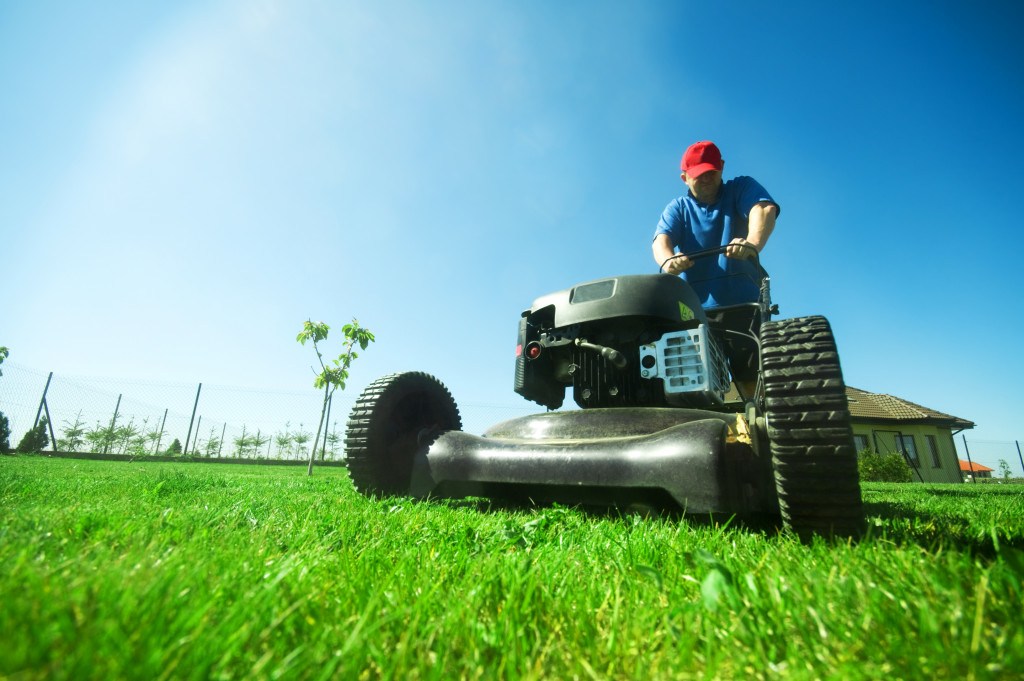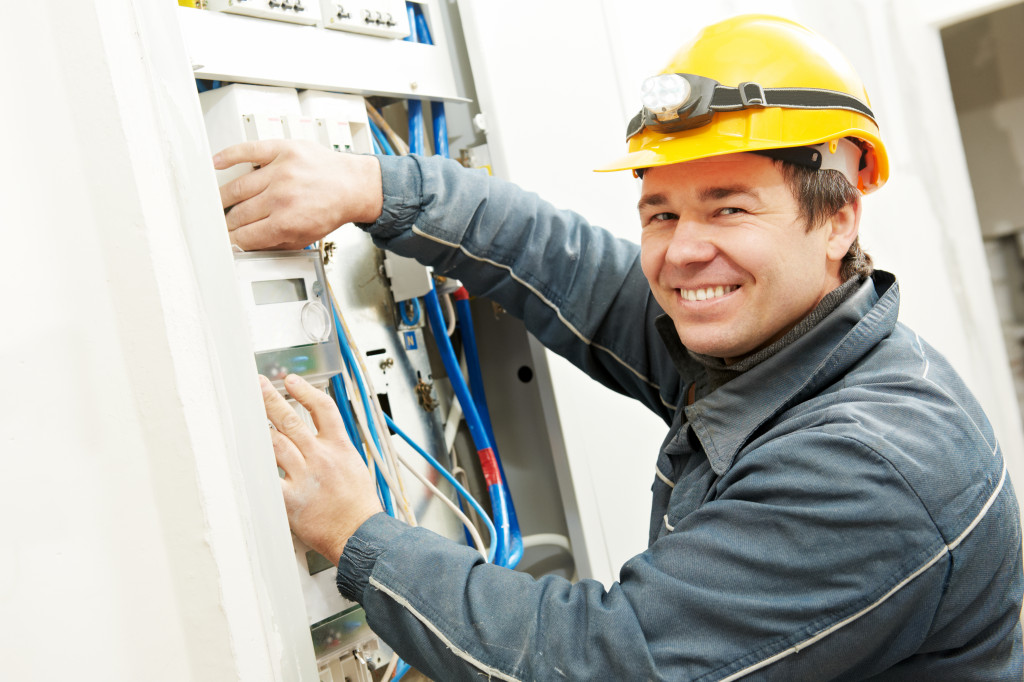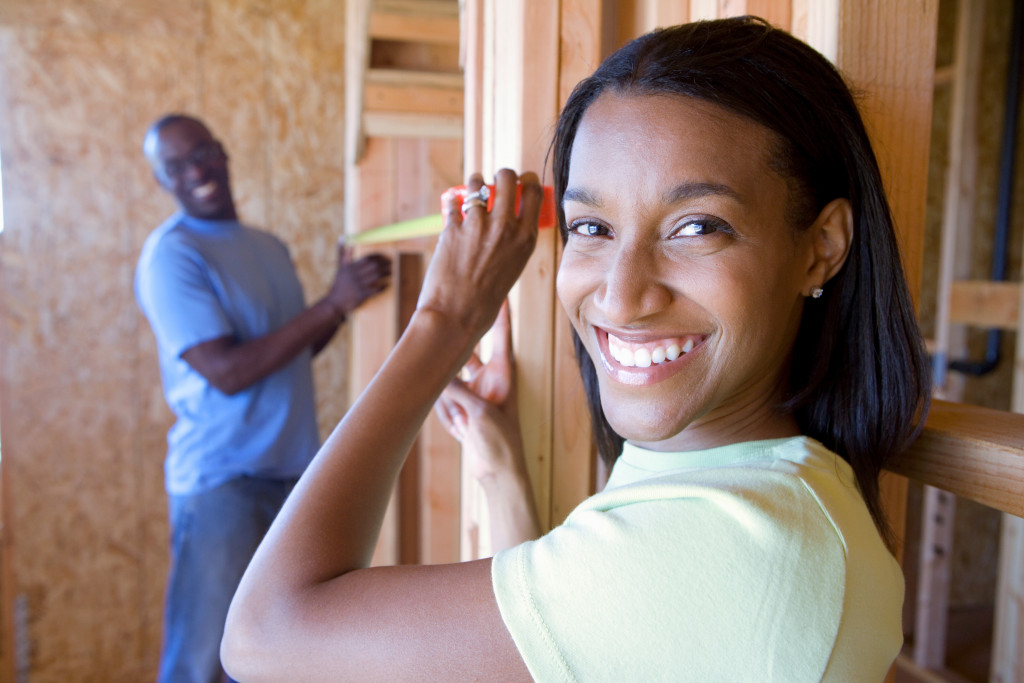- Ensure the proper disposal of construction waste by hiring a roll-off bin service.
- Landscape your home’s outdoor space for improved curb appeal and increased property value.
- Create a maintenance schedule and stick to it for the prolonged life of your home and financial savings in the long run.
- Install deadbolts on doors and windows and a home security system for peace of mind.
- Conduct a thorough inspection of your entire house, including the structure, electrical system, plumbing system, and HVAC system.
Building a home is a significant undertaking that requires a lot of effort, time, and money. After the construction, it is time to start thinking about what to do next.
Once your house is ready, there are several things that you can do to ensure that your new home remains in good condition for many years to come. This post will discuss five tips on what to do after the construction of your house.
Proper Waste Management
After the construction is complete, you must dispose of any construction waste properly. Ensure that any leftover building materials, such as gravel, bricks, and pipes, are cleared from the site. According to your local regulations, dispose of any hazardous waste, such as chemicals or batteries.
One of the best ways to dispose of construction waste is to hire a roll-off bin service. These services provide bins in various sizes that can hold all kinds of debris. With this service, you no longer need to worry about manually disposing of the waste yourself; the company will take care of it for you.
Landscaping

After the construction is complete, it is essential to start planning for your home’s outdoor space. You can either hire a professional landscaper or do it yourself. Consider designing a garden, planting trees, or building a patio or deck. Landscaping can help improve your home’s curb appeal and increase your property’s value.
Proper Maintenance
Owning a home requires proper maintenance to keep it in good condition. Regular maintenance will prevent issues that could lead to costly repairs in the future. Create a maintenance schedule and keep up with it. Change your air filters, clean your gutters, and keep your appliances in good working condition. Regular maintenance will help prolong your home’s life and save you money in the long run.
Home Security
Another essential task to do after the construction of your house is to ensure that your home is secure. Install deadbolts on your doors and windows, and invest in a home security system. Home security will provide peace of mind and protect your home from theft and burglaries.
You can also install motion-activated lights outside your home for additional security. This can deter potential criminals and make spotting suspicious activity easier.
Thorough Inspection
Inspecting your entire house is crucial before you start moving in your furniture and belongings. What are the areas you need to check? Here are a few:
Structural Inspection
The first and most crucial area to inspect is the structure of your new house. This includes checking the foundation, roof, walls, and other supporting components. Reviewing the foundation is particularly important, as any weakness in this area could cause serious problems. Check for cracks, bulges, or unevenness in the foundation. Inspecting the roof is important, too, as it keeps the elements out of your home. Look for any missing shingles, leaks, or other signs of damage.
Electrical System Inspection

The next area to inspect is the electrical system in your new home. This includes checking the wiring, outlets, switches, and fixtures. Have a licensed electrician inspect the electrical system for safety and code violations. Damaged wiring or poorly installed outlets can lead to house fires, so it is important to ensure your electrical system is safe from the start.
Plumbing System Inspection
The plumbing system is important and is another area that needs to be thoroughly inspected. This includes checking for leaks, proper drainage, water pressure, and sewer lines. Ensure that all the toilets, sinks, and showers are in working order and no leaks are present. Water damage can lead to costly repairs down the road, so it is essential to ensure your plumbing system is in good condition.
HVAC System Inspection
Finally, it is important to inspect the heating, ventilation, and air conditioning (HVAC) system in your new home. This includes checking the furnace, air conditioning unit, air ducts, and filters. Ensure that the furnace and air conditioner are in good working order and that the air filters are clean. Proper ventilation is essential for healthy air quality in your new home.
Final Thoughts
After the construction of your house, it is essential to take steps to ensure that your home remains in good condition. Conducting a thorough inspection, proper waste management, landscaping, proper maintenance, and home security are five tips that you can follow to ensure that your home is safe, secure, and in good condition. By implementing these tips, you can enjoy your new home for many years to come.

